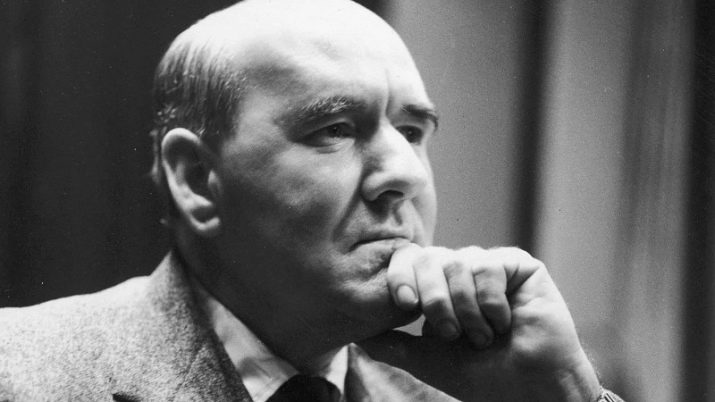Parkinson's laws at a glance

As you know, ignorance of the laws does not exempt one from responsibility, but studying them helps to make life easier, protects business from unlawful outside interference, protects the family from unnecessary problems, and helps to save money.
Moreover, we are talking not only about those laws that are spelled out in the constitution of this or that state, or the laws of physics, which, with their skillful use, can also be useful in the economy. Today we'll talk about Parkinson's laws.

History
First, let's get to know their author. Cyril Northcote Parkinson was born at the beginning of the last century in an English family. His parents were creative people: his mother gave music lessons, his father was a painter. And their son in his youth was carried away by history. He graduated from Cambridge College, first received a master's degree and then a Ph.D. No wonder that Cyril Parkinson was a very observant person, he traveled a lot... He shared his observations with students at lectures both in his native England and abroad.
From 1950 for 8 years he was a professor at the University of Malay in Singapore. At the same time, he published his laws, collecting them in a book, which he called "Parkinson's Laws". However, by this time, some of his fellow countrymen had already managed to get acquainted with the works of Parkinson. Initially, chapters of his future book were published in the British magazine "The Economist". And there they were published in a satirical column.
A little time passed, and it became clear to everyone that this is not funny because it really works.

Basic laws
There was no more humor in Parkinson's laws than completely serious judgments on the formation of bureaucratic apparatus, organizing a successful business, and creating a successful family. There it was possible to get information relevant to everyone, namely: how to save on electricity, how to overpay taxes to the state. As a result, by the middle of the last century, Parkinson's book became a real bestseller and still remains a reference book not only for heads of large companies, high-ranking officials, but also for some housewives around the world.
In fact, the professor's conclusions are universal for any sector of the economy and each social stratum of the population. In them one can find reasoning about the growth in the number of managers and the answer to the question why power and money literally go into their own hands to someone, while others cannot succeed in any way. To understand that an Englishman's book is a work for all time, it is enough to familiarize yourself with its summary. Among other things, the observant Briton even created a retirement age law. On a topic that became relevant for Russians in 2018, a scientist from Britain said that any employee begins to lose his grip 3 years before reaching retirement age, whatever that age may be. But let's get acquainted with the observations that have become laws, in order.

First
Cyril Parkinson formulated his first law as follows: the volume of any work will always increase to fill the allotted time. In another way, it sounds like this: work in any case will take all the time allocated for it. For example, if a student knows that his course book should be ready by September, then in 99% of cases out of 100 he will finish it on August 31, at best. Although, if I wanted to, I could have done it much faster. But in the overwhelming majority of cases, a person puts off until tomorrow what can be done today. The same applies to the conduct of work.
Well, what kind of worker, knowing that his task must be completed by a certain date, will rush to complete it, unless, of course, he is promised a big bonus for this, or his name is not Stakhanov. The same applies to officials. But the situation there is developing even more paradoxically. Their number is constantly growing, according to Parkinson's observations, at least 5% per year. And this is not because they have more work, just in the bureaucratic apparatus with its implementation, they not only drag to the last, but also try to shift part of it to another.
In addition, the Briton came to the conclusion that almost all those in power, or who consider themselves as such, certainly want to expand the staff of their subordinates. Agree, this is typical not only of officials from foggy Albion. Take a look at how our authorities operate.
Second
Parkinson's Second Law speaks of our needs and capabilities. According to the observation of an Englishman, the former never go separately from the latter. That is the more a person earns, the more he spends. Costs always increase with income. Hence the well-known postulate that there is never a lot of money. And this applies not only to everyone's personal budget, but also to business planning. The same rule applies to the state treasury. The higher the standard of living of the population in a particular country, the higher the taxes there.
They often increase in connection with the growing needs of the authorities. And this, we recall, was noticed even more than half a century ago.

Third
Parkinson's Third Law reminds us of the need to sometimes say stop. The Englishman, having studied the experience of different companies, great ancient civilizations, finally came to the conclusion that any development leads to complication and, as a result, "buries" what was created earlier.
You need to understand that the limit to perfection, contrary to popular belief, still exists... A rose cannot be more red than a talented breeder bred it. And a horse cannot run faster than its capabilities, even if it is driven by the finest rider.So a person, having created something extraordinary, sooner or later must move on to creating something new, and not engage in constant improvement of something that does not cause any complaints. In general, do not wipe the rug to the holes.
The same goes for business. If your business has turned from a small coffee shop into a respectable restaurant, do not try to turn it into a fashionable hotel. Since the beginning of your business, your worries have greatly increased. Remember how easy it was to manage a team of 10 people, and how difficult it is for you now.
And also taxes are constantly increasing, competitors are pressing, the inspectors have overcome. Is this not enough for you? Don't ruin yourself and your successful business.
Mrs Parkinson
It is not surprising that such an outstanding husband of his Fatherland, and the whole world, had a very extraordinary wife. She also made her contribution to the Parkinson's system of human values. Her feminine gaze, of course, was more directed towards household chores. And this is what she came to: according to the law that Mrs. Parkinson deduced, the warmth that comes from one of the family members through the impeccable conduct of his household is constantly growing and overwhelming him... And he can share it exclusively with someone who is more cold-blooded in this sense.

Other observations
In addition to the above "basic" laws of Parkinson, others are attributed to him, less large-scale, in essence, but no less relevant for every person, again, regardless of his social status, income level, religion, nationality, gender and age.
- Delay axiom... According to her, there is no more reliable and cunning form of refusal than a request to wait for the fulfillment of some request or requirement. You don’t want or cannot do something, but you cannot say “no”, just say that you will do it a little later. How many times has your boyfriend put off going to the registry office? He knows exactly how the delay axiom works.
- Law of a thousand... It states that any enterprise or company with 1,000 employees no longer needs outside help. You no longer need to invite a cleaning company or freelancers there. Such an organization becomes self-sufficient, there is everything and everything that is necessary for running a business.
- The law of the telephone. It appeared long before cellular communication became widespread and mobile phones became not a luxury, but a means of communication. So, the Law of the Parkinson's telephone says: any telephone conversation is the more effective, the less time is spent on it. Remember this when you prove to your colleague that he is wrong for the hundredth time over the phone. Wouldn't it be easier to sit down and discuss everything, using illustrative examples as evidence, rather than shouting into the telephone receiver?
- The law of scientific research. According to this law, which initially seems to be aimed at a narrow circle of citizens, successful scientific research is impossible without increased funding, which, in turn, makes it impossible to continue studying anything indefinitely. The cash flow will inevitably dry up. But does this only work in academia? See Parkinson's Third Law above.
- The law of information. It is not about a person or an organization, but about technology, which, however, is already gradually becoming a part of society, and in some cases of the family. If in the days of Parkinson cars gradually filled everything, now we are all surrounded by machines with artificial intelligence. In some industries, they have already replaced humans. So, according to the law of information, an increase in its amount occurs in order to fill the entire memory of the carrier. And the need to increase the memory of these very carriers requires the creation of new ones.
And, as a consequence, the development of technologies and the emergence of more and more advanced information carriers. For a long time you asked Alice, who lives on your phone, how she and yours are?


Practical use
It must be remembered that the author of the above laws himself was sure that everything he saw and recorded was not so scary, sad and bad as it seems initially. He considered the purpose of his research not to show humanity in what "unbearable" conditions it exists, but to make people think and rise above these very laws.
It is no coincidence that Parkinson presented them in a playful, humorous manner. That's why smile and go through life not according to the above rules, but strictly contrary to them.
For example, stop spending everything that you earned - you just had enough some time ago and smaller amounts... Keep your needs in check, even if your options have begun to greatly exceed them. Use the money saved on this for more rational needs.
Buy real estate, for example, and when your children grow up, you will be able to immediately provide them with housing, and not apply to the bank for a loan for this, which, of course, will lead to even greater costs.

In the meantime, rent out the "idle" apartment. Spend the funds received to buy a house on the beach. Next time you won't have to spend money on hotel accommodation during your vacation, and the best paradise for meeting grandchildren in old age can hardly be imagined.
Do not delay paying off debts and loans - the sooner you get rid of this financial dependence, the faster your business will go uphill. Make a "stash". Some believe that it should be at least 20 percent of all income received. If you think this is too much, start saving less of your earnings.
The financial "safety cushion" will be thinner, the main thing is that it will be there. But sleeping with a pillow is always more comfortable than without it.
It is up to everyone to follow the advice of an English philosopher or not. By the way, after retirement for 33 years he lived in a cozy place on one of the Channel Islands. He wrote books, painted pictures and went sailing. It might still be worth following his advice. And then you, most likely, are waiting for financial well-being, happiness in family life and all other benefits that you can only dream of, as a sane and purposeful person.










I like Parkinson. I re-read his book and each time I learned something new, but that he painted pictures, I did not know. I would be glad to have at least one at home.